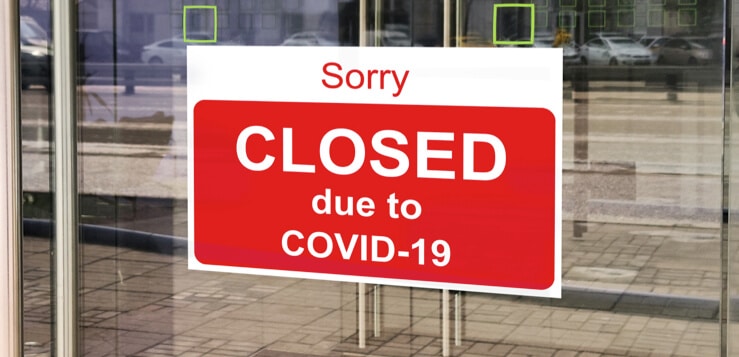Gov. Tom Wolf announced an order Thursday afternoon shutting all of Pennsylvania’s casinos for more than three weeks effective Saturday.
The governor, who himself tested positive for COVID-19 on Tuesday, joined counterparts in Michigan, Illinois, and Rhode Island who had already shut down their own casino industries to try to stem the rise in COVID-19 cases.
In a livestreamed announcement at 4 p.m., Wolf made the casino shutdown part of a broader order that also will prohibit indoor dining, theaters, museums, gyms, and activities in other public gathering spaces. He said the action was necessary considering the coronavirus surge that has produced record number of deaths in recent days.
“The work we do now to slow the spread of COVID,” he said, “is going to help us all get back to normal as quickly as possible.”
The broad ban ceases activity at the casinos and other venues from 12:01 a.m. Saturday until 8 a.m. Jan. 4.
Other casinos join Rivers Philadelphia
Philadelphia’s Rivers Casino had already been closed since Nov. 20 under a separate local order from officials in the state’s largest city. Now it will be joined in the dark by 11 others, including Pennsylvania’s first mini-casino, Live! Pittsburgh, which only just opened Nov. 24 in Westmoreland County.
The state’s casinos were previously closed for 88 or more days each, from mid-March through staggered reopening dates starting June 9. That was the Wolf administration’s first go-around at controlling the coronavirus outbreak, in a period when all of the nation’s nearly 1,000 commercial and tribal casinos shut down either by government order or voluntarily.
Prior to the Pennsylvania announcement, the American Gaming Association reported on its website Thursday that 112 casinos are presently closed and 884 open. Many of those properties are shut down voluntarily, rather than by government order, due to the operators’ revenue concerns.
Since their reopenings in June, the Pennsylvania casinos have been operating under various restrictions. They have been limited to no more than 50% of their normal maximum occupancy, smoking inside has been banned, and bars have been shut down, with no alcohol served on the casino floor. Many normal amenities, such as nightclubs and buffets, are unavailable.
Financial impact is another blow
The spring shutdown of Pennsylvania’s $3 billion-a-year casino industry was a massive blow to the operators and the state, which is heavily dependent on them for tax revenue.
Pre-COVID, nearly $300 million monthly was being earned in collective slots and table games revenue by the casinos. Their lost revenue during the prior shutdown easily exceeded $800 million — about 40% of which would have gone to state and local government as taxes — although those with online casinos in PA made up some of that with increased digital play.
Since reopening, brick-and-mortar casino revenue has been off about 15-20% in Pennsylvania from the levels of a year ago. Even at that lower level of visitation, however, each day of shutdown will result in a loss of about $7 million in combined slots/table revenue and $2.8 million in government taxes.
The closures also sideline most of the 10,000-plus workers in the state’s industry, a figure that is down about 6,000 since the start of the year due to furloughs from more limited operations.
Those casino employees have had their own COVID issues, with the Pennsylvania Gaming Control Board reporting that as of Thursday afternoon, 395 of them statewide have tested positive. That’s more than twice the number that had been reported in mid-November.






